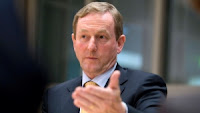From Tottenham to Tennessee, Capitalism Is Destroying Politics
THE DAILY TELEGRAPH:
Democracy is at stake unless the huge and growing pay gulf between the very rich and ordinary workers can be narrowed.
Tottenham Jobcentre Plus is shut. Boards mask its charred frontage, and a notice screwed to the door announces that the building “has closed due to fire damage and will remain closed until further notice”. Clients are directed to a government website or to a “Temporary Service Arrangements fact sheet”. There is no guidance on how that document might be procured.
In a country with more than a million unemployed 16- to 24-year-olds, this centre, just down the road from where the riots of 2011 began, stands as a monument to dole-queue Britain. A young man with a toddler in his arms hovers outside. He has just arrived from Ghana with an HND in marketing, he says, and he needs a National Insurance number in order to find a job. Someone told him he should start here. They were wrong.
In the borough of Haringey, which includes Tottenham, the percentage of citizens claiming Jobseekers’ Allowance is 6.7, against a national average of 3.8. A contrasting portrait of a Britain whose Midas touch eludes sinking communities is revealed today as the independent High Pay Commission publishes the results of a year-long inquiry into corporate excess.
It reports that, in the past three decades, top executives have awarded themselves increases of more than 4,000 per cent, with the chief executive of Barclays earning £4,365,636, or 169 times more than the average worker. The chief executive of Lloyds, one of the banks bailed out by the taxpayer, gets £2,572,000, which represents a 3,141 per cent hike over the same period.
The top 0.1 per cent of British earners are not only as rich as Croesus, the Lydian king synonymous with great wealth. Most are, by virtue of that fortune, citizens of another country. This realm, dubbed “Richistan” by the American writer Robert Frank, is home to a global elite whose US branch earned more by 2004 than the entire take-home pay of Canada.
» | Mary Riddell | Monday, November 21, 2011
My comment:
This is all going to end in communism if nothing serious and meaningful is done about it. Ordinary folk will NOT tolerate this forever more. History shows this to be so. The riots in London which shocked us all will look like a picnic in the park if things go on as they are. This is NOT capitalism! This is a malignant deviation from it. Capitalism isn't working; and nor is democracy. The end of all this will not be a pretty sight. It's five to midnight. The end is nigh. – © Mark
This comment also appears
here.































